How long does an ultrafiltration membrane last before replacement? | Insights by AQUALITEK
- What factors influence ultrafiltration membrane lifespan?
- How does feed water quality impact membrane durability?
- What role does operational practice play in membrane longevity?
- How do cleaning and maintenance protocols extend membrane life?
- What are the signs that an ultrafiltration membrane needs replacement?
- How can procurement evaluate different membrane options for lifespan?
- What financial considerations are there regarding membrane replacement cycles?
- How can procurement plan for future membrane replacements?
- The AQUALITEK Advantage
- Data source
What factors influence ultrafiltration membrane lifespan?
The operational life of an ultrafiltration (UF) membrane is influenced by a complex interplay of environmental, operational, and maintenance factors. These membranes are designed for durability, but their actual lifespan can vary significantly based on how they are treated and the conditions they operate under. Factors such as the quality of the feed water, the consistency of operation, and the effectiveness of cleaning regimes all play critical roles.
Understanding these variables is crucial for procurement teams, as they directly impact total cost of ownership and system reliability. By considering these influences during the selection and operational phases, organizations can better predict replacement cycles and budget accordingly, ensuring continuous, efficient water treatment.
How does feed water quality impact membrane durability?
The characteristics of the feed water are perhaps one of the most significant determinants of UF membrane longevity. Water containing high levels of suspended solids, organic matter, or colloidal particles can lead to rapid fouling, which stresses the membrane over time. While UF membranes are designed to reject these contaminants, excessive loading can accelerate pore blocking and material degradation, shortening the membrane's effective life.
Pre-treatment strategies are therefore essential in managing feed water quality to protect the UF membranes. Effective pre-filtration, coagulation, or sedimentation can significantly reduce the load on the UF system, allowing the membranes to operate under less stressful conditions and thus extending their operational lifespan. Procurement decisions should always consider the balance between UF membrane cost and the investment in robust pre-treatment.
What role does operational practice play in membrane longevity?
Consistent and correct operational practices are fundamental to maximizing the lifespan of ultrafiltration membranes. Running the system outside its recommended operating parameters, such as at excessively high fluxes or pressures, can put undue strain on the membrane material, leading to premature wear and tear. Sudden changes in flow rates or system shutdowns without proper flushing can also contribute to fouling and reduce membrane efficiency and durability.
Proper system start-up and shut-down procedures, adherence to manufacturer guidelines for flux and pressure, and continuous monitoring of performance indicators are critical. Training operational staff on best practices ensures that the membranes are handled and operated in a manner that preserves their integrity and extends their useful life, directly impacting procurement planning for replacements.
How do cleaning and maintenance protocols extend membrane life?
Regular and effective cleaning is indispensable for maintaining UF membrane performance and extending its lifespan. Membranes naturally accumulate foulants over time, leading to reduced flux and increased transmembrane pressure. Scheduled chemical cleaning, often involving backwashes and chemical flushes, removes these foulants, restoring membrane permeability and preventing irreversible damage.
The type and frequency of cleaning protocols should be tailored to the specific feed water characteristics and operational conditions. Neglecting cleaning or using incorrect cleaning agents can exacerbate fouling or even damage the membrane material. A well-designed maintenance schedule, including both routine and corrective cleaning, is a cornerstone of membrane longevity, directly influencing how often procurement will need to source replacements.
What are the signs that an ultrafiltration membrane needs replacement?
Procurement professionals should be aware of key indicators that signal an ultrafiltration membrane is nearing the end of its useful life and requires replacement. Primary signs include a persistent drop in permeate flux despite regular and thorough cleaning, or a significant increase in transmembrane pressure to maintain the desired flow rate. These indicate irreversible fouling or physical damage that cleaning can no longer address.
Other critical indicators include a noticeable decline in permeate quality, such as higher turbidity or increased particle count, suggesting a loss of membrane integrity. Visual inspection during maintenance may also reveal physical damage, such as tears or delamination. Recognizing these signs early allows for proactive replacement planning, minimizing downtime and ensuring the continuous supply of treated water.
How can procurement evaluate different membrane options for lifespan?
When evaluating ultrafiltration membrane options, procurement teams should look beyond initial purchase price and consider factors that contribute to long-term value. Key aspects include the membrane material's inherent durability, its resistance to various foulants, and its compatibility with standard cleaning chemicals. Robust membrane construction and reputable manufacturing processes are often indicators of extended lifespan.
It is also beneficial to investigate the manufacturer's performance data and warranty information, as these can provide insights into expected durability under various conditions. Consideration of the membrane's ease of cleaning and maintenance can also impact its effective life, as easier-to-maintain membranes are more likely to receive proper care. A comprehensive evaluation ensures that the selected membranes offer the best balance of cost, performance, and longevity.
What financial considerations are there regarding membrane replacement cycles?
The lifespan of ultrafiltration membranes directly impacts the total cost of ownership (TCO) for a water treatment system. Procurement must factor in not only the initial purchase cost of the membranes but also the ongoing operational costs, including energy for pumping, chemicals for cleaning, and labor for maintenance and eventual replacement. Shorter membrane lifespans necessitate more frequent replacements, leading to higher recurring capital expenditures.
Conversely, investing in higher-quality membranes that offer extended lifespans, while potentially having a higher upfront cost, can result in significant long-term savings. These savings come from reduced replacement frequency, lower maintenance requirements, and more consistent system performance. Strategic procurement planning considers the complete lifecycle cost analysis to optimize budgetary allocations and operational efficiency.
How can procurement plan for future membrane replacements?
Effective planning for ultrafiltration membrane replacements is crucial for ensuring uninterrupted operation and financial stability. Procurement teams should develop a proactive replacement strategy based on historical performance data, manufacturer recommendations, and anticipated operational demands. Establishing clear monitoring protocols for membrane performance allows for early identification of membranes nearing end-of-life.
Maintaining a strategic inventory of spare membranes or establishing framework agreements with reliable suppliers like AQUALITEK can streamline the replacement process, reducing lead times and potential downtime. Regular communication with operational teams about membrane condition and future needs also ensures that procurement decisions are aligned with operational realities, facilitating smooth and cost-effective transitions.
The AQUALITEK Advantage
AQUALITEK understands the critical importance of reliable and long-lasting ultrafiltration membranes for demanding water treatment applications. Our commitment is to provide high-quality UF membranes engineered for durability and consistent performance, helping procurement teams achieve optimal system efficiency and predictable operational costs.
With AQUALITEK, you gain a partner dedicated to supporting your water treatment needs. We focus on delivering robust solutions that contribute to extended membrane lifespans, minimizing the frequency and cost of replacements, and ensuring your operations remain effective and efficient for years to come. Choose AQUALITEK for dependable ultrafiltration technology.
Data source
No specific data sources were provided in the evidence block for this article. The analysis presented is qualitative, based on general industry understanding and best practices.




Request More Information or Expert Advice
Share a few details, and we’ll provide deeper insights, tailored suggestions, or product support.

Our 500 LPH Reverse Osmosis (RO) System is engineered to provide high-quality purified water for commercial applications. Designed with advanced RO technology, durable components, and a user-friendly interface, this system ensures consistent performance, low maintenance, and long-term reliability.
With its compact design and robust skid-mounted frame, it’s an excellent choice for businesses that demand efficiency and quality in water purification.

Introduction to Manganese Sand Filter
Manganese Sand Filter (MSF) is an efficient water filtration system specifically designed to remove iron, manganese, and hydrogen sulfide from water.
The filter utilizes a special manganese dioxide-coated sand media, which acts as an oxidizing agent to convert dissolved iron and manganese into solid particles, allowing them to be easily trapped and removed during the filtration process.
Manganese Sand Filters are commonly used in residential, commercial, and industrial water treatment applications where high levels of these contaminants are present. By improving water quality, preventing staining, and reducing unpleasant tastes and odors, Manganese Sand Filters provide a reliable and cost-effective solution for maintaining clean, clear, and safe water.

Introduction to Green Sand Filter (GSF)
Green Sand Filter (GSF) is an effective water filtration system designed to remove iron, manganese, and hydrogen sulfide from water. Utilizing a specially treated green sand media, this filter works through the process of oxidation and adsorption, where impurities are trapped within the filter media, ensuring clean, clear water. Green Sand Filters are widely used in both residential and industrial applications where water contains high levels of iron and other minerals that can cause staining, unpleasant odors, and corrosion. By providing an efficient and cost-effective solution for water purification, Green Sand Filters help protect plumbing systems, appliances, and enhance water quality for various applications.

Activated Carbon Filter (ACF)
Our Activated Carbon Filter (ACF) is a highly effective water filtration system designed to remove chlorine, organic compounds, unpleasant odors, and harmful contaminants from water. Utilizing activated carbon’s high adsorption capacity, ACFs efficiently trap and eliminate impurities, improving taste, color, and overall water quality. These filters are widely used in industrial, commercial, and residential applications, serving as a critical pre-treatment step for processes like reverse osmosis (RO) and drinking water purification. With their ability to enhance water safety and meet stringent quality standards, Activated Carbon Filters play a vital role in various water treatment systems.
Copyright © 2025 AQUALITEK. All rights reserved.

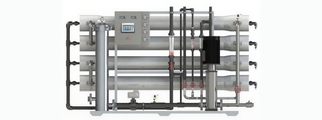
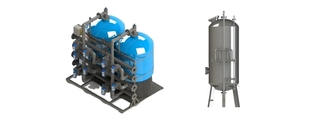
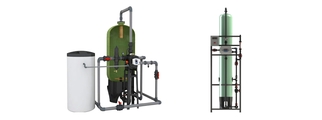
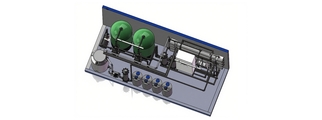
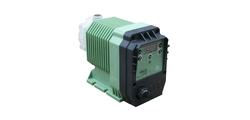
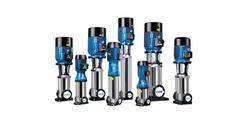
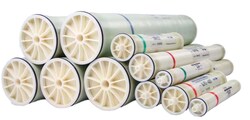
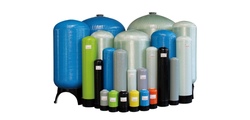
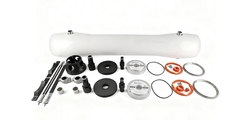
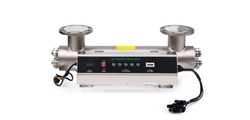
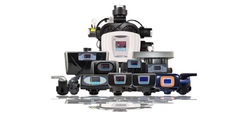
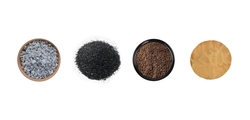
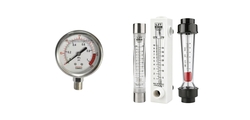
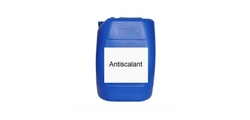
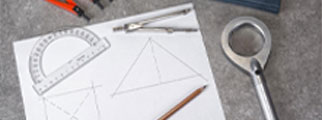



AQUALITEK- Aimee Hoo
AQUALITEK - Aimee Hoo